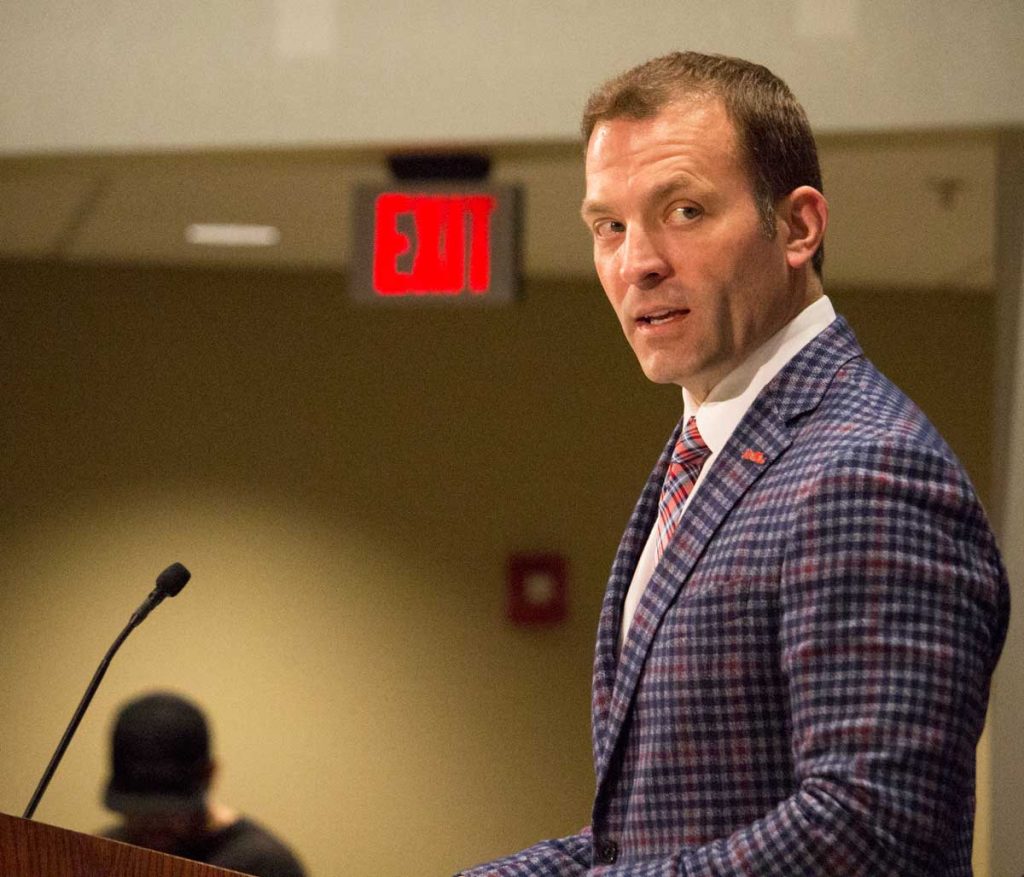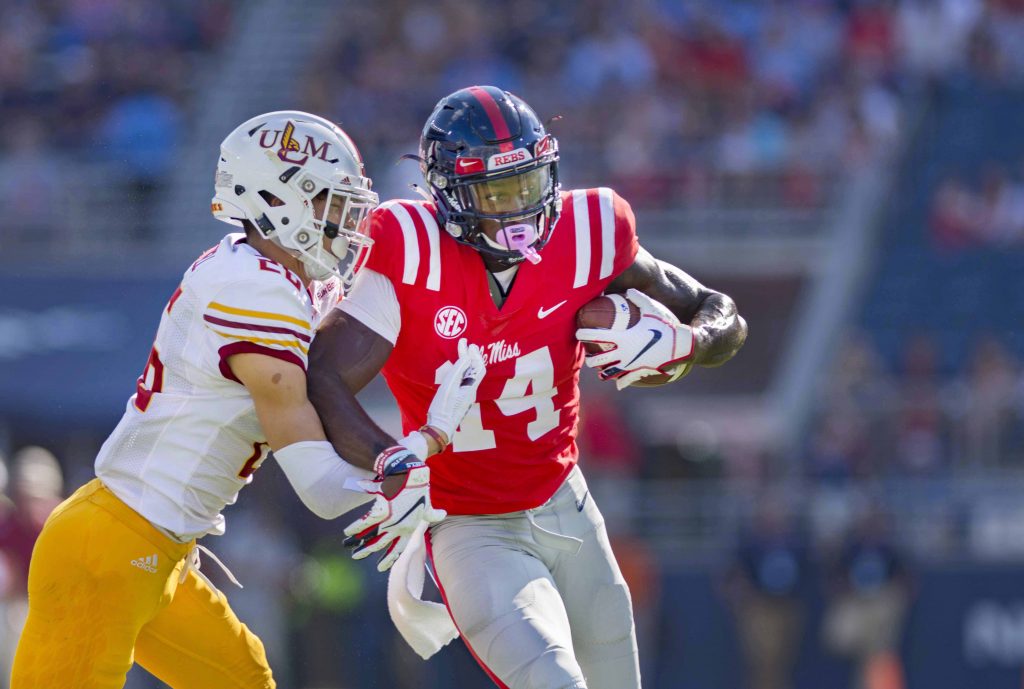The case is finally closed.
The NCAA Appeals Committee announced its decision to uphold Ole Miss’ 2018 postseason ban on Thursday, along with affirming its findings of a “lack of institutional control” and “impermissible recruiting inducements.” The committee did, however, overturn the university’s penalty restricting recruits’ unofficial visits to campus.
The Appeals Committee’s ruling brings a nearly six-year saga of investigations, sanctions and appeals to an end. University of Mississippi Chancellor Jeffrey Vitter and athletics director Ross Bjork released a statement following the committee’s ruling, accepting the committee’s decision while also expressing some disappointment with the committee’s upholding of the 2018 bowl ban.
“While we are pleased by the (Appeals Committee’s) finding the the (Committee on Infractions) abused its discretion with the respect to the unofficial visit penalty, we remain disappointed by the remainder of the ruling, which upheld a 2018 postseason ban and findings of lack of institutional control and recruiting inducements,” the statement reads.

Ross Bjork looks to the side of the room as he explains the grievances he has with the NCAA and the COI ruling. The NCAA accepted all sanctions Ole Miss imposed on itself and added an additional bowl game ban in 2018. File photo by Billy Schuerman
Regarding the upheld postseason ban, the Appeals Committee cited “multiple level I violations over five years involving multiple staff and representatives of athletics interests.” The committee ruled that a second year of a postseason ban “falls squarely with the penalty guidelines…this case classification is one to two years postseason ban”.
The short-term outcome is not what the university wanted, with the Appeals Committee upholding Ole Miss’ 2018 postseason ban. However, the Committee’s decision to overturn the penalty restricting unofficial visits of recruits to campus can be considered a win for the football program, as it will allow head coach Matt Luke and his staff to recruit highly-rated prospects without any restrictions hanging over their heads.
“I think overall, like I said, it’s disappointing in the short-term for Ole Miss because of no bowl,” said Jim Holder, WTVA Tupelo sports director. “But in the long-term, the fact that they’ve had some of those restrictions on recruiting removed is going to turn out well.”
Furthermore, rival head coaches and recruiters from other schools no longer have the advantage of feeding perspective recruits information about Ole Miss’ lingering NCAA investigation, and Ole Miss will no longer have to answer recruits’ questions about the case.
“The fact that the NCAA thought the infractions committee kind of overstepped its bounds surprised me,” Holder said. “Usually when it’s something with an NCAA appeal, very rarely do you hear anything overturned.”
With the case reaching a conclusion, the university, athletics department, coaches, players and the Rebel faithful can now focus on football, rather than being distracted by the NCAA investigation and worrying about what will come next. Once the 2018 season is over, Ole Miss will be eligible for postseason play, effectively ending all punishments against the football program.
“This ordeal is now over. Our attention must now be on the present and the future of our football program, and we are calling on the Ole Miss family to help finish this season strong,” Vitter and Bjork’s letter read. “With the freedom to recruit and promote all that the University of Mississippi has to offer, Coach Luke and his staff will keep building on the momentum we have in our program.”

Wide receiver D.K. Metcalf fights off a Louisiana-Monroe defender during the homecoming game earlier this season. Ole Miss won the game 70-21. File photo by Christian Johnson






